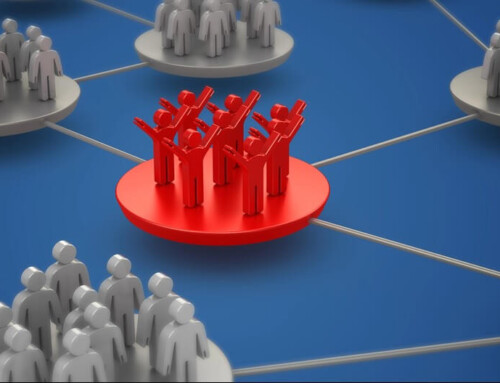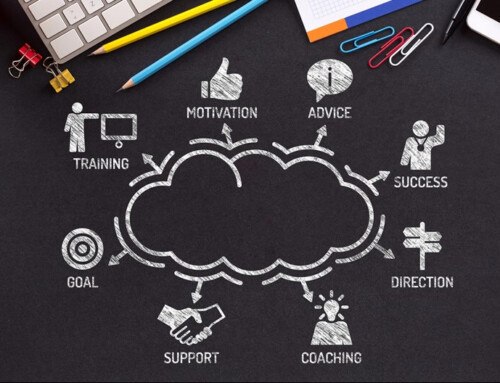This article includes historical information for context. While the core content remains valuable, some details reflect past events and may not be up to date. We regularly update our blog to keep you informed of current insights.
One of the realities that has persisted during upheaval and uncertainty is that businesses and people are becoming more volatile. It is certainly understandable, given the dramatic shifts and rifts that have taken place since 2020. Many people struggling financially and emotionally are more inclined to be sparked by behaviors, events, and situations. This volatility includes employees, leadership, customers, and stakeholders. As for organizations, many took a severe hit when mandated shutdowns required them to close their doors, and labor shortages currently pose hardships for others.
Working remotely has changed the workforce environment in ways that even veteran virtual workers could not have expected. While technology has undoubtedly played a vital role during the pandemic and has proven necessary in many respects, it cannot replace the power of personal interaction between stakeholders and the influence of leadership when the team works in a shared space. For these reasons, technology will never fully replace personal, face-to-face interaction.
Despite the above challenges, great leaders are learning from these experiences and are adapting their methodology. Many corporate cultures are finding that kindness and compassion are champions. Of course, leaders must also strike a balance between strength and humility. A more tolerant workplace that displays empathy to struggling employees must also complement productivity and morale. In terms of business performance, leadership must think ahead, remain fluid, and plan meticulously.
So, how exactly can leadership adequately plan for running a business both during and in the post-pandemic world?
Rethink Expectations
When the world – and life as people know it – gets upended, insisting on holding employees to previous expectations simply will not work. For example, employers may need to consider granting employees more sick days, family medical leave, and other paid time off than they did before the pandemic. Why? Human beings need to decompress after extremely stressful situations. It was for this reason that William Shakespeare wrote comedic scenes in his tragedies. It is not just time off that requires rethinking expectations. Leadership could carefully examine all areas of their business to see which areas demand revisions.
PRO TIP: Consider more flexible options now. Allow employees to cash in on unused but earned vacation or personal time off to lighten financial burdens. Offer generalized “time off” rather than a strict sick day, holiday, and vacation day schedule. This can offer better options, mainly if it can be accrued monthly and used immediately, for those who need time to care for loved ones, mental health days, or just vacation time.
Prepare for New Threats
Many companies suffered severe financial damage due to the pandemic, even in historically strong industries. This is a clear indication that leadership in all organizations across various markets need to take stock of what new threats they may face now. As the world learned from the pandemic, it is essential to expect – and plan for – the unexpected. That does not mean there will not be surprises; that is the nature of life. But it does mean the business will be positioned to handle these surprises well.
PRO TIP: Planning can be difficult, mostly if it is done with blinders. Don’t become attached to just a single industry or a few markets. Instead, look at markets and industries that serve the same audience and/or complement the industry of your organization. There may be hidden gems and ideas that can result in new revenue streams now, as well as help plan for potential threats in the future!
Reconsider Consumer Values
The curbside pickup was once a service that was not offered by most restaurants – until it became standard, out of necessity. This is just one example of how services and products that may not have existed before, or were a luxury most people could not afford, have been re-tooled or invented where none previously existed. Leadership should carefully consider new or changing values consumers have in the wake of the pandemic, as well as staffing shortages, and remain fluid in adjusting or expanding their offerings.
PRO TIP: Customer surveys, market research, feedback, and social listening are valuable tools to gain insight into current and future customer values, wants, and needs. However, don’t stop there. Learn more by speaking to vendor partners, suppliers, and others that interact with others in like industries.
Expand the Company’s Network
Not even the most prominent companies can function without an external network. Vendors, partners, and loyal customers all play a critical role in making or breaking a business. As the pandemic demonstrated, every organization is vulnerable to crises. Therefore, leadership must assess its existing network and decide where expansions and fortifications should be made.
This is not the time for leadership to shrink from change or become passive. Instead, to ensure the future of their company, they must act boldly and plan carefully.
PRO TIP: Anticipate and plan for multiple backups when it comes to vendors and partners and keeps building a loyal customer base. These essential relationships will be crucial to growth during standard business operations but absolutely critical necessities to keep the business alive during challenging times.
Uncertain times call for strategic thinking. Contact Gavel International to be inspired with solutions that connect and engage your people.
This article was last updated on May 12, 2025
- Why Hustle Culture Can Harm Sales Success – and How to Repair the Damage - June 30, 2025
- Enhance Sales Through Team-Friendly Storytelling - May 5, 2025
- Unlocking Excellence: The 7 Traits of Top Performers and Their Impact - April 14, 2025






